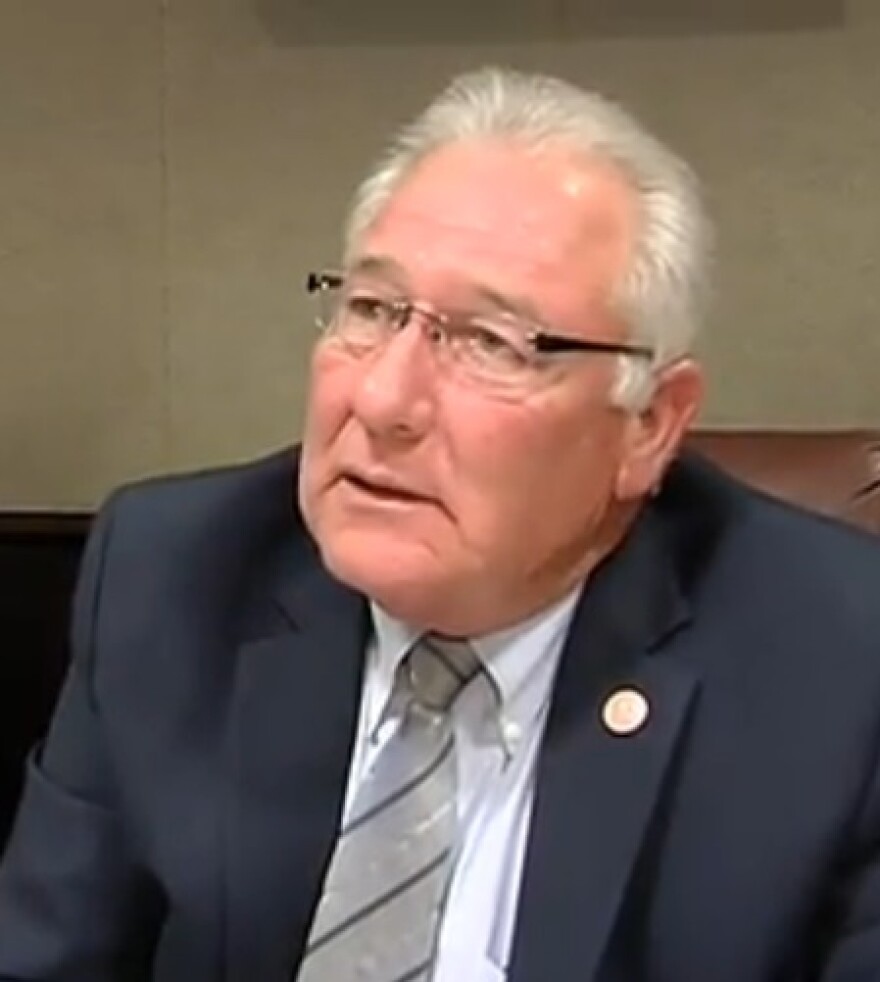In the coming weeks, a Senate panel is slated to take up a comprehensive prison reform proposal aimed at fixing Florida’s troubled prison system.
It’s been months since Senate President Andy Gardiner tasked Sen. Greg Evers (R-Baker)—the Senate Criminal Justice Committee chairman—with writing a comprehensive prison reform package to help fix a system plagued by inmate deaths and inmate abuse allegations. Gardiner says these are serious issues.
“When I asked him [Evers] to chair the committee, I asked him, ‘I want you to take a leadership role on this.’ I think you’ll see things added to that bill as we build it as you go. We’re still waiting on some recommendations from the department on what they’d like to see added to that,” said Gardiner.
“This is probably the biggest priority of the session I feel like because of the deaths of the inmates, and it has caused an extreme amount of concern on the members here in the Senate as well as I’m sure in the House too,” said Senator Evers.
Evers recently filed the proposed committee bill. But, the measure hasn’t been taken up and Evers says that’s probably a good thing, since he’s already in talks to expand the bill.
“We’re looking at our bill, and possibly, actually doing a rewrite on the bill that we have. Specifically, we don’t think the bill goes far enough to ensure the safety of the correctional officers as well as the inmates and ultimately, us that’s on the outside of the fence too,” added Evers.
The bill includes provisions requiring stats on elderly prisoners, give inmates different avenues to file grievances, and provide more training for prison guards.
Evers says it also makes sure there’s a written formal agreement between the Florida Department of Corrections and the Florida Department of Law Enforcement when investigating inmate deaths.
“We wanted to make sure that if there was a death, adequate investigation of that death was reported to FDLE and that a proper investigation be done on that particular incident because what we do not want is abuse of the inmates, you know, if you commit credit card fraud and you’re sentenced to 18 months when you’ve got like 90 days left, you shouldn’t come out in a body bag,” continued Evers.
He says the bill will also include provisions for making sure there’s adequate inmate health care. And, he adds prison guard shifts, currently at 12-hours shifts, will also be reviewed.
“There’s a lack of communication between the shifts, which could be a potential problem for the officers as well as the inmates. So, we’re looking at different options—whether we go to eight-hour shifts or how we stack the 12-hour shifts. So, right now, it’s up in the air,” stated Evers.
Other Senators have already started weighing in on what they’d like to see in the bill, including Fleming Island Republican Senator Rob Bradley. He has a bill filed that makes the Florida Department of Corrections’ Secretary position subject to Cabinet approval.
Bradley says the most important change he’d like to see is a provision that allows a nine-member panel to go to any correctional facility for surprise inspections.
“What was more important to me, what is my bigger priority is the independent oversight commission issue,” said Bradley. “Hopefully, everything is still in play, but my sense from my colleagues is that the independent oversight commission is something that they’re particular interested in further exploring.”
Meanwhile, over in the other chamber, House Speaker Steve Crisafulli has tasked Rep. Larry Metz (R-Yalaha), the Justice Budget chairman, with looking into the issue.
“...and look at the challenges that are out there, and make sure that the dollars that are spent here from Tallahassee go to the right place to accomplish the right things. You know, it has become a hot topic. It is something that we’re going to be looking at along with a litany of other issues that are out there. But, certainly, that’s one that rises to the top of that silos of issues” said Crisafulli.
Overall, Evers worries if the House and Senate proposals’ differ and the chambers can’t come to an agreement, it would be bad for the state.
“Then, I feel like at that point, the bill that we had, if it weren’t passed, ultimately the death of any inmates…their blood…would be on the hands of the legislature as well as the governor,” said Evers.
Both versions of the bill will likely be informed by surprise visits both Evers and Metz recently made to correctional facilities.
For more news updates, follow Sascha Cordner on Twitter: @SaschaCordner.






